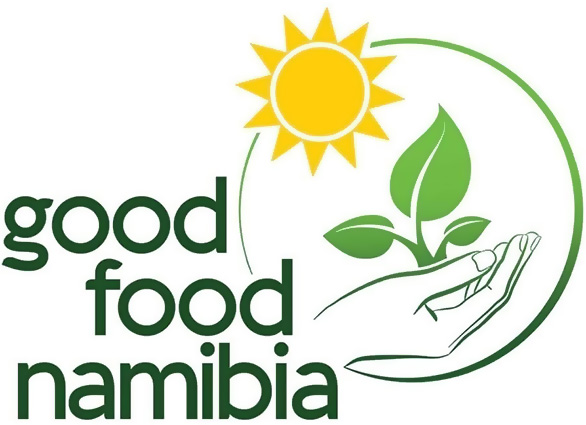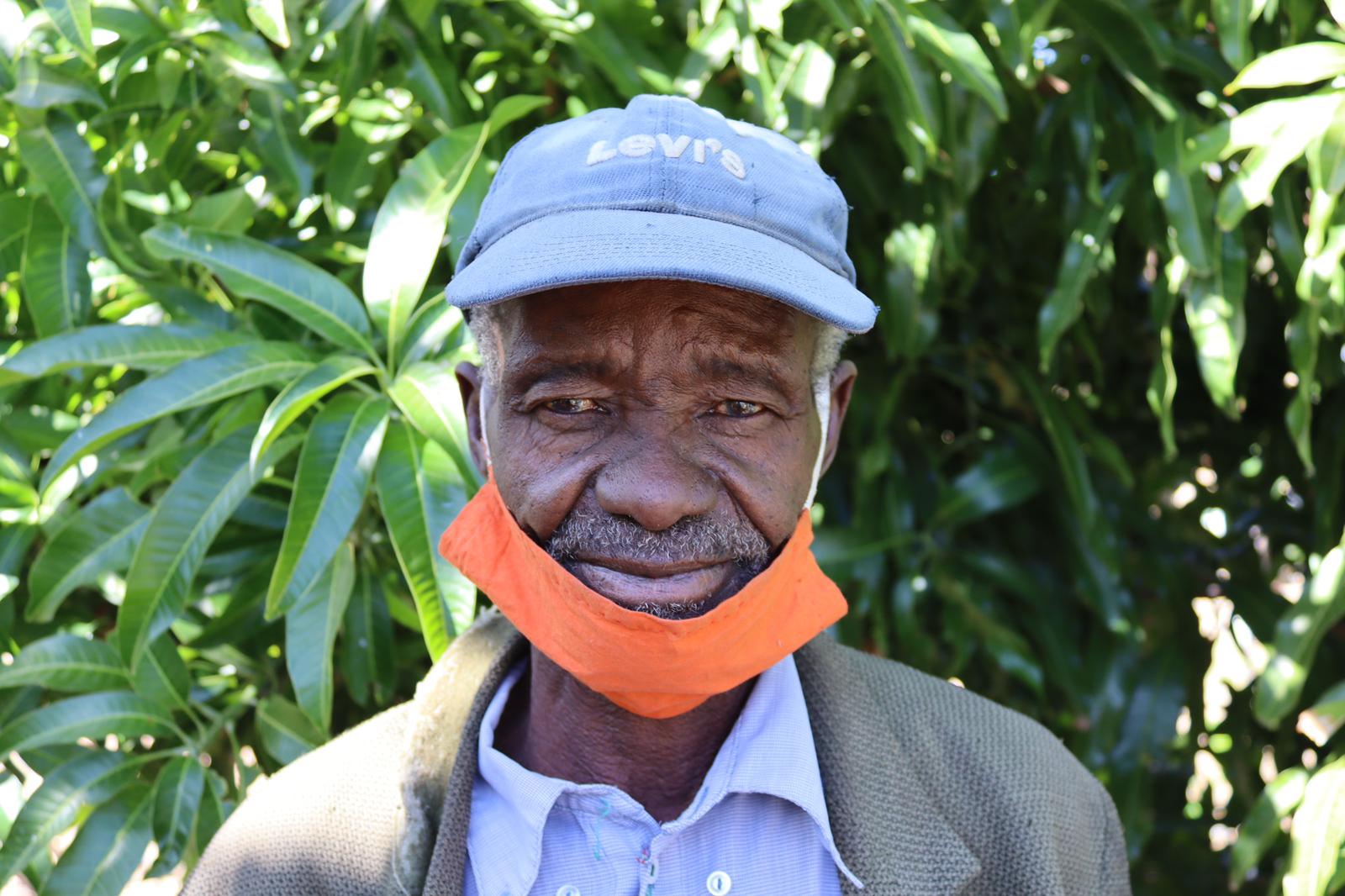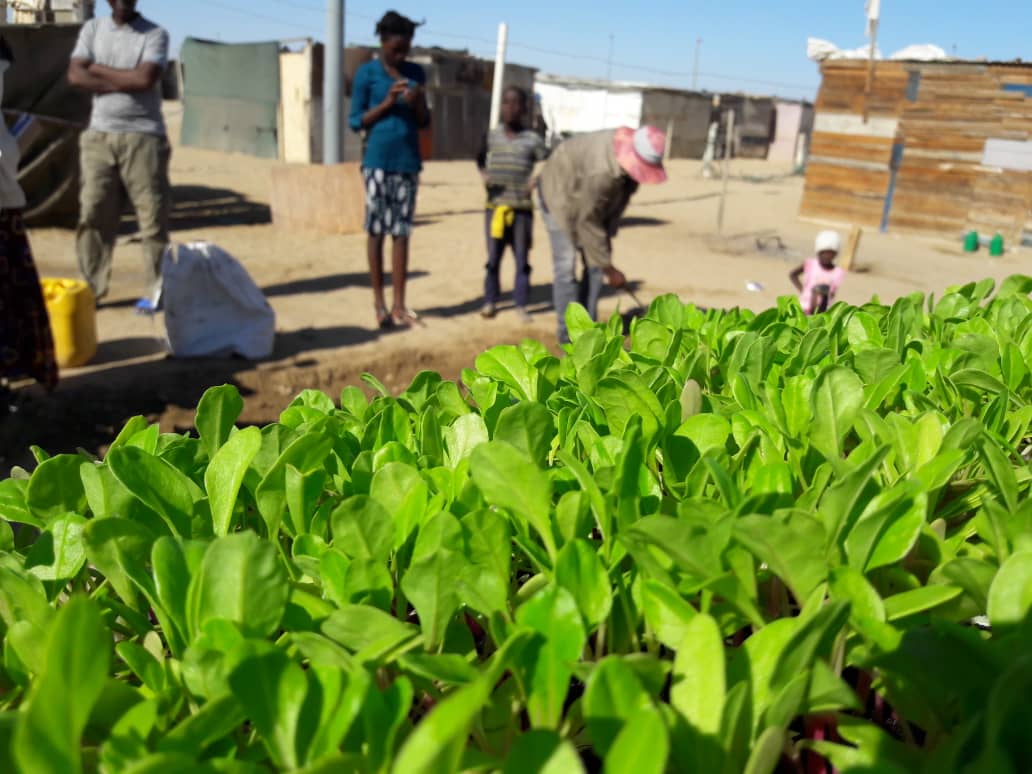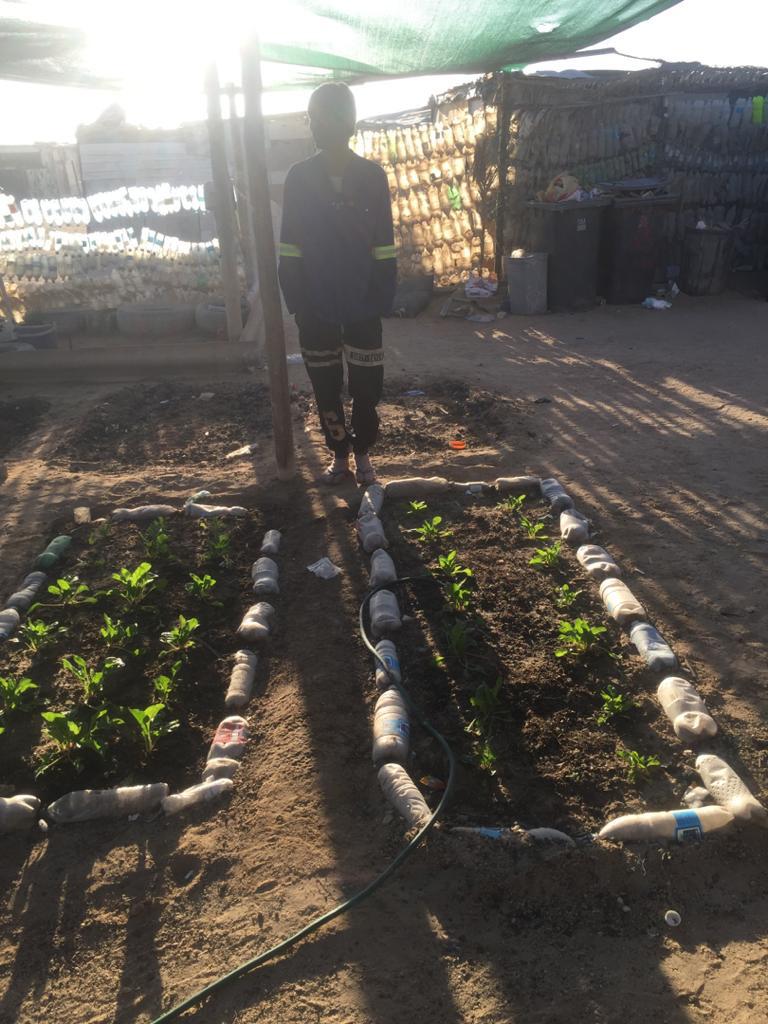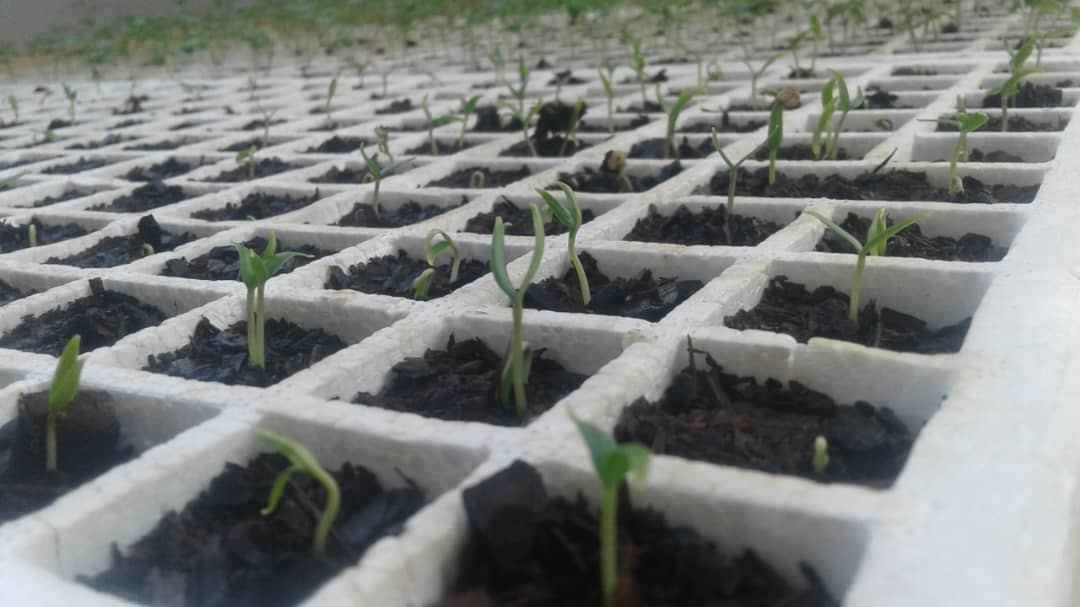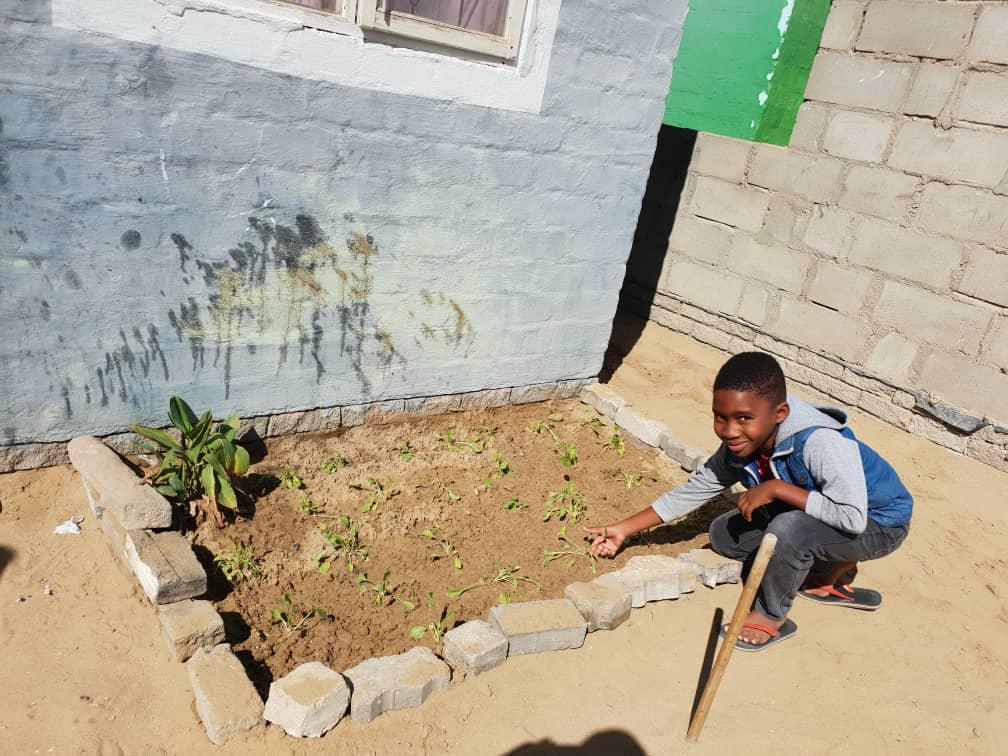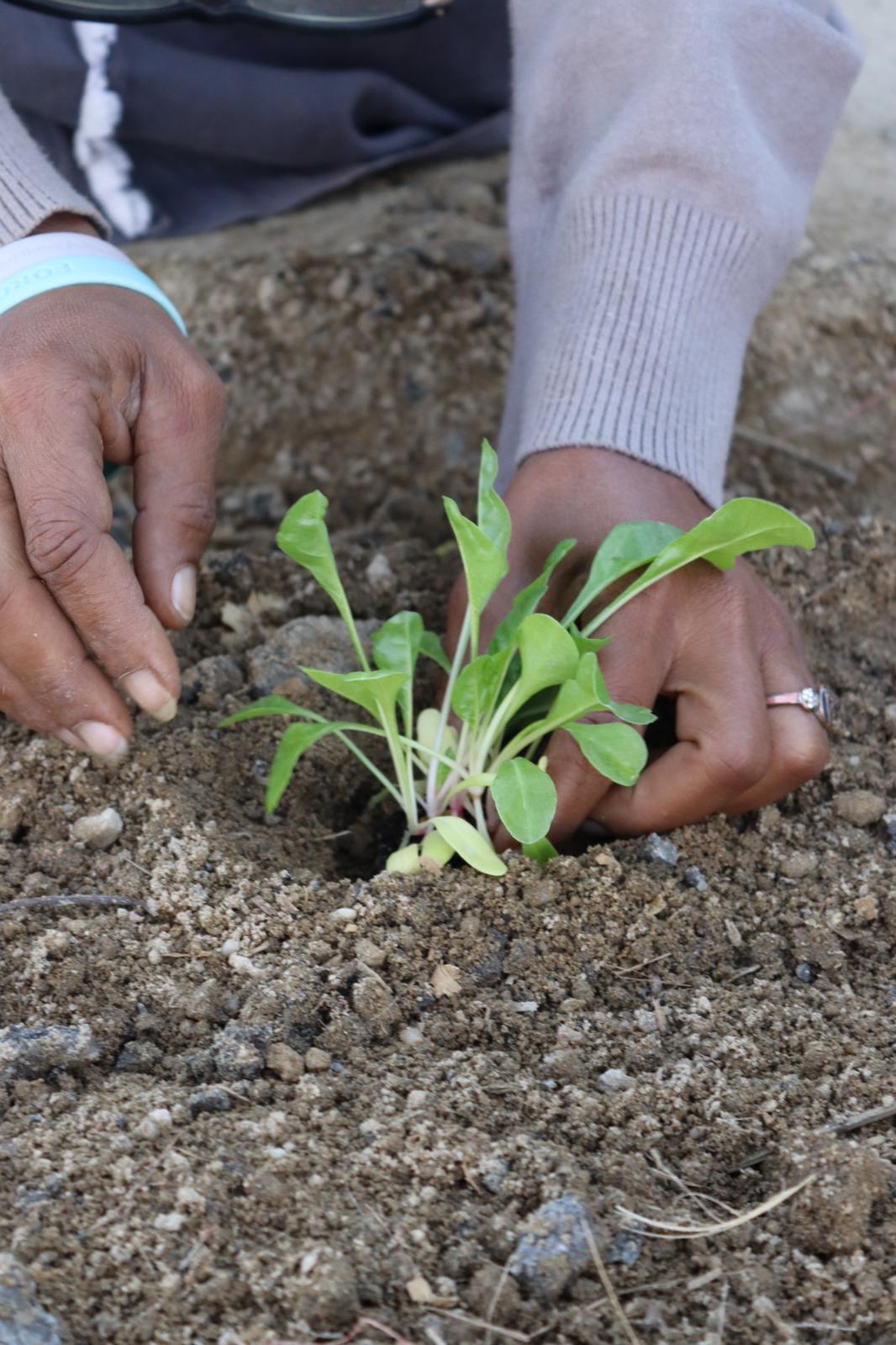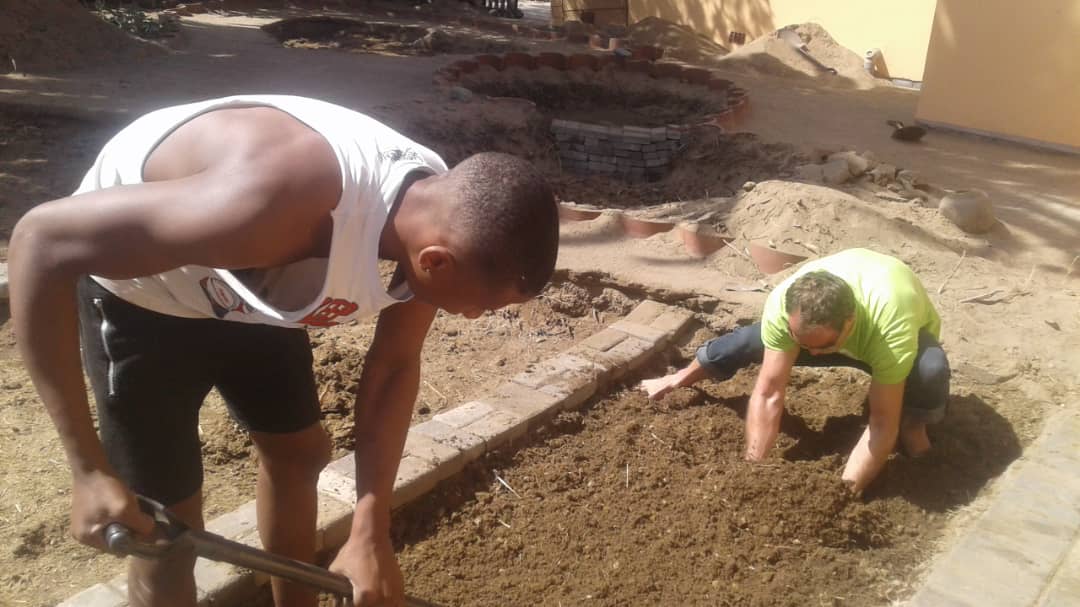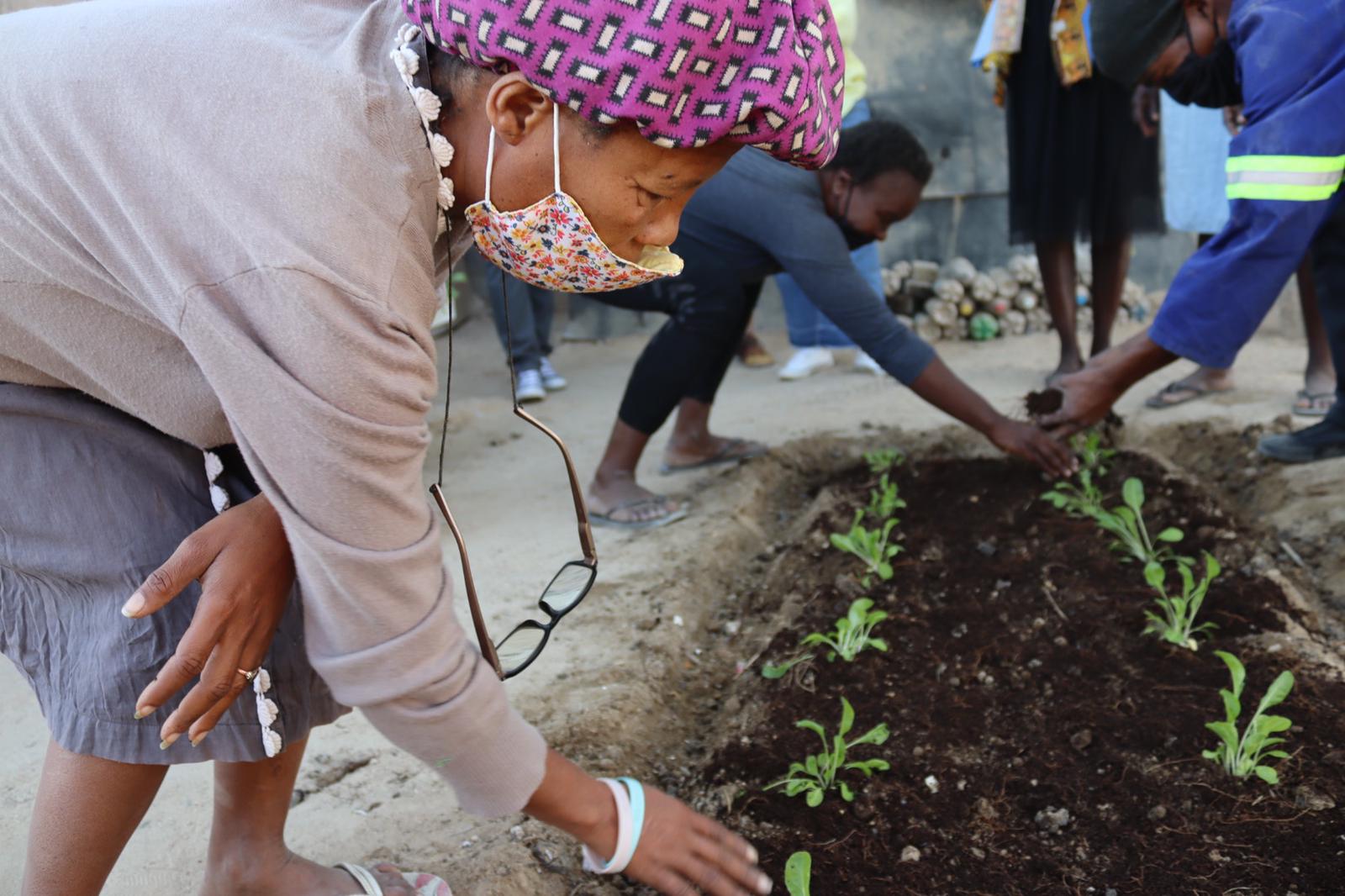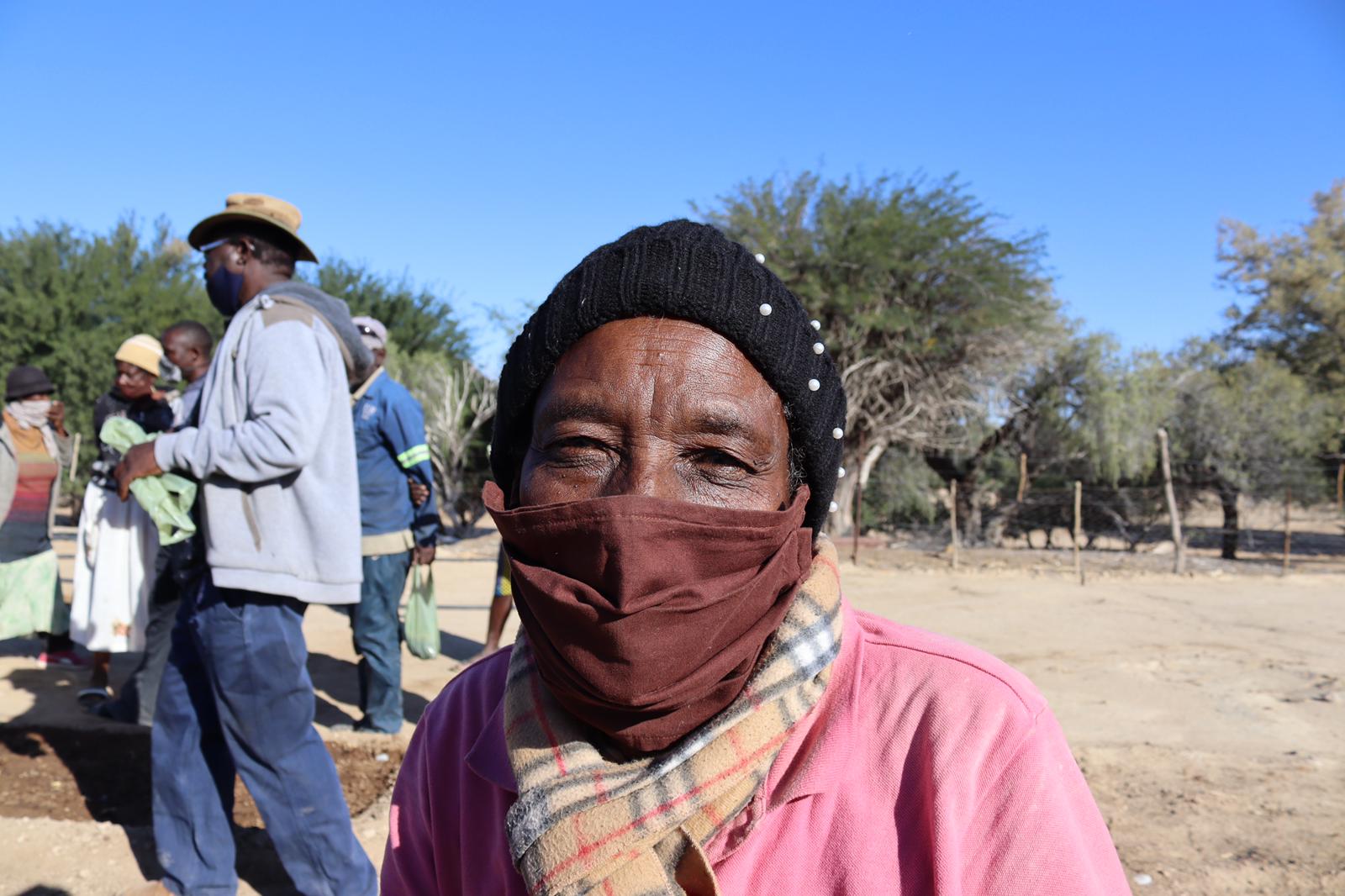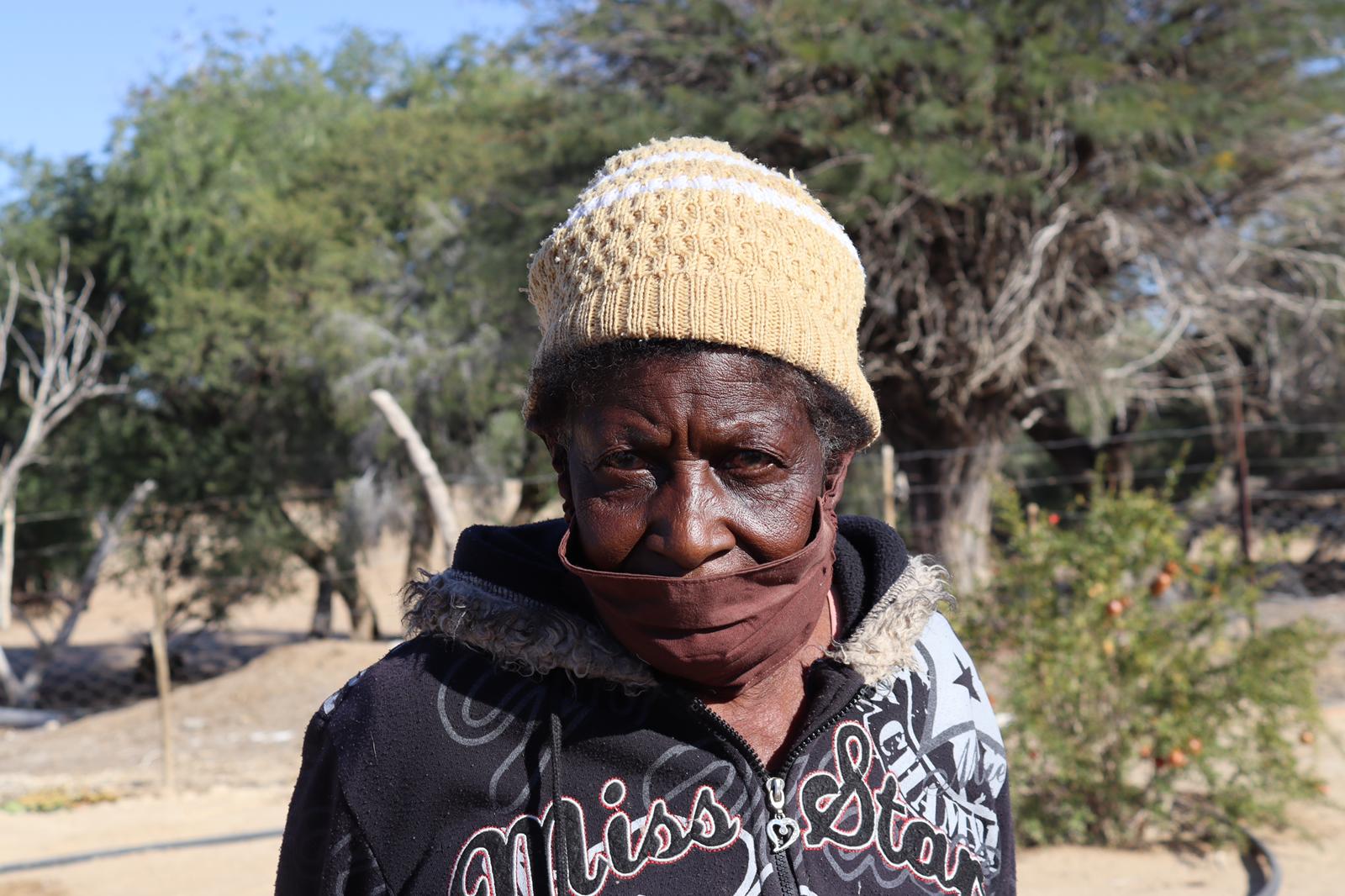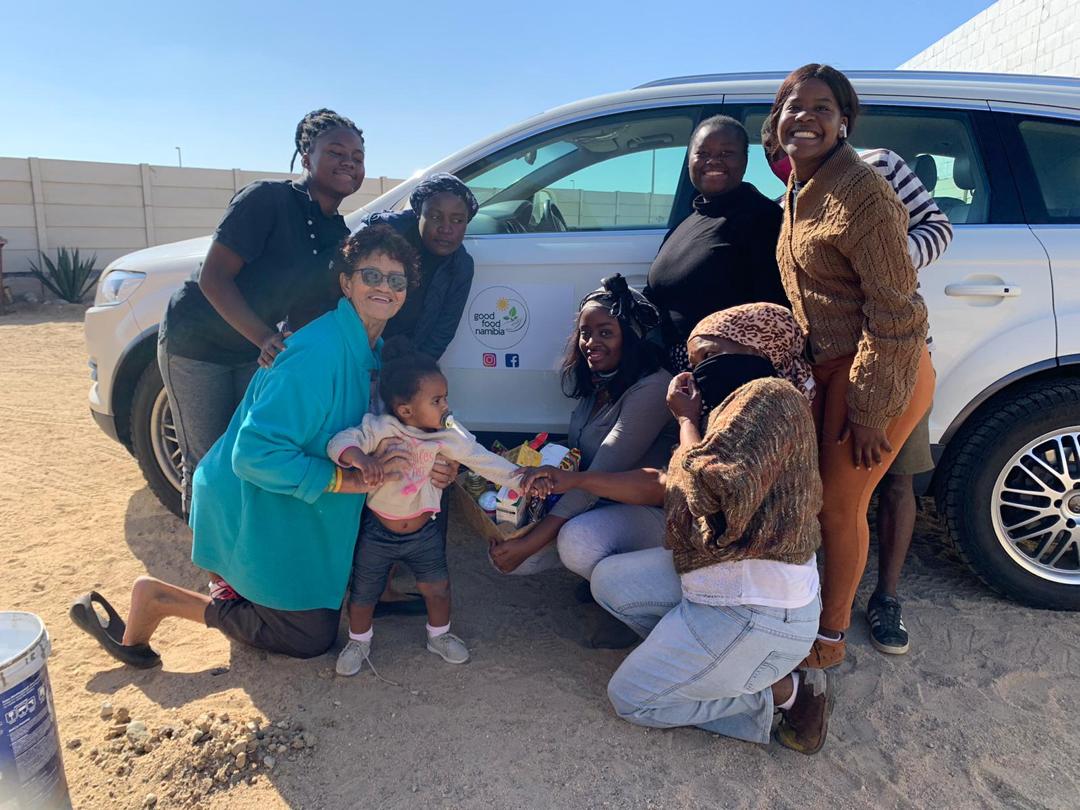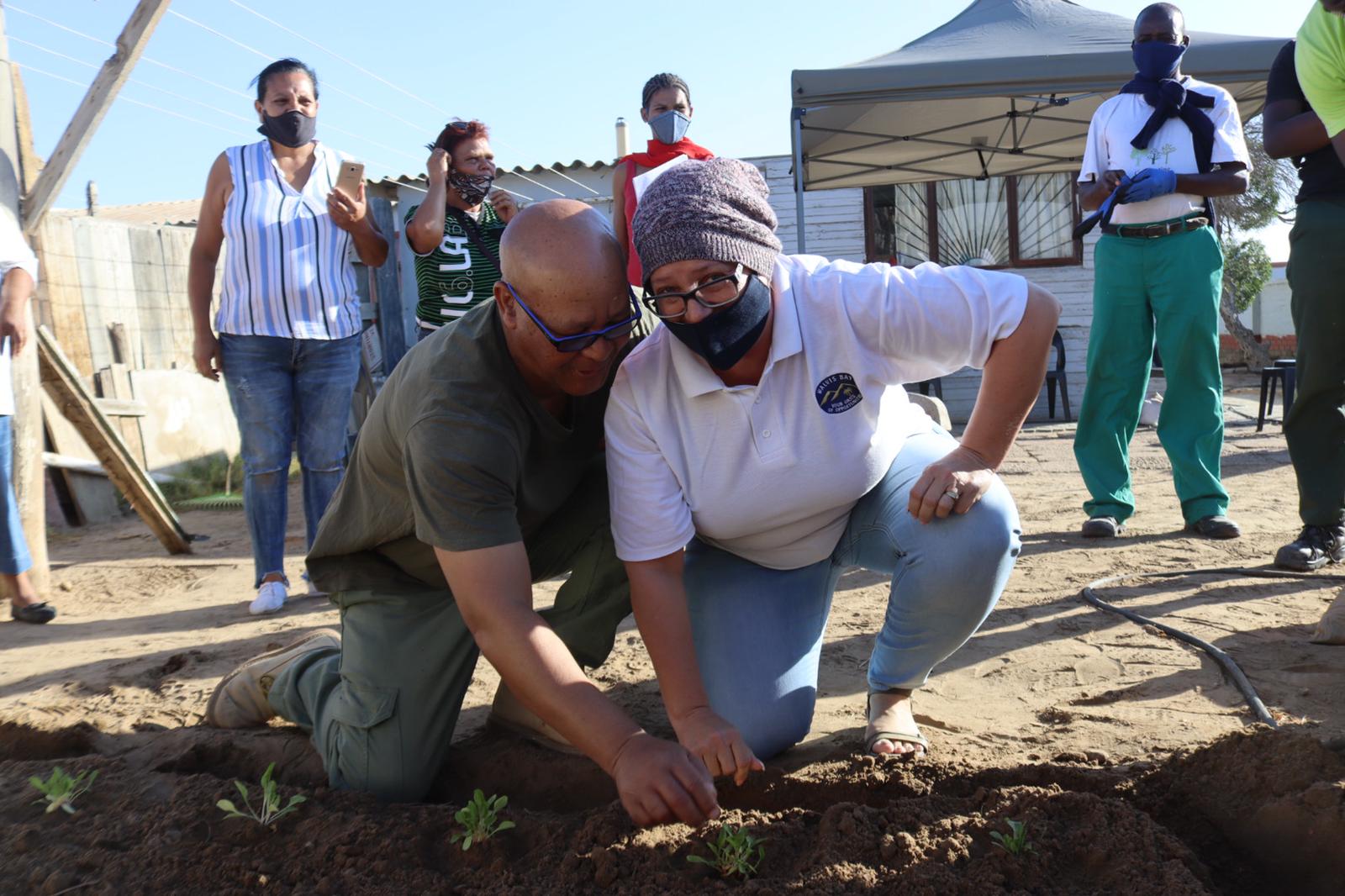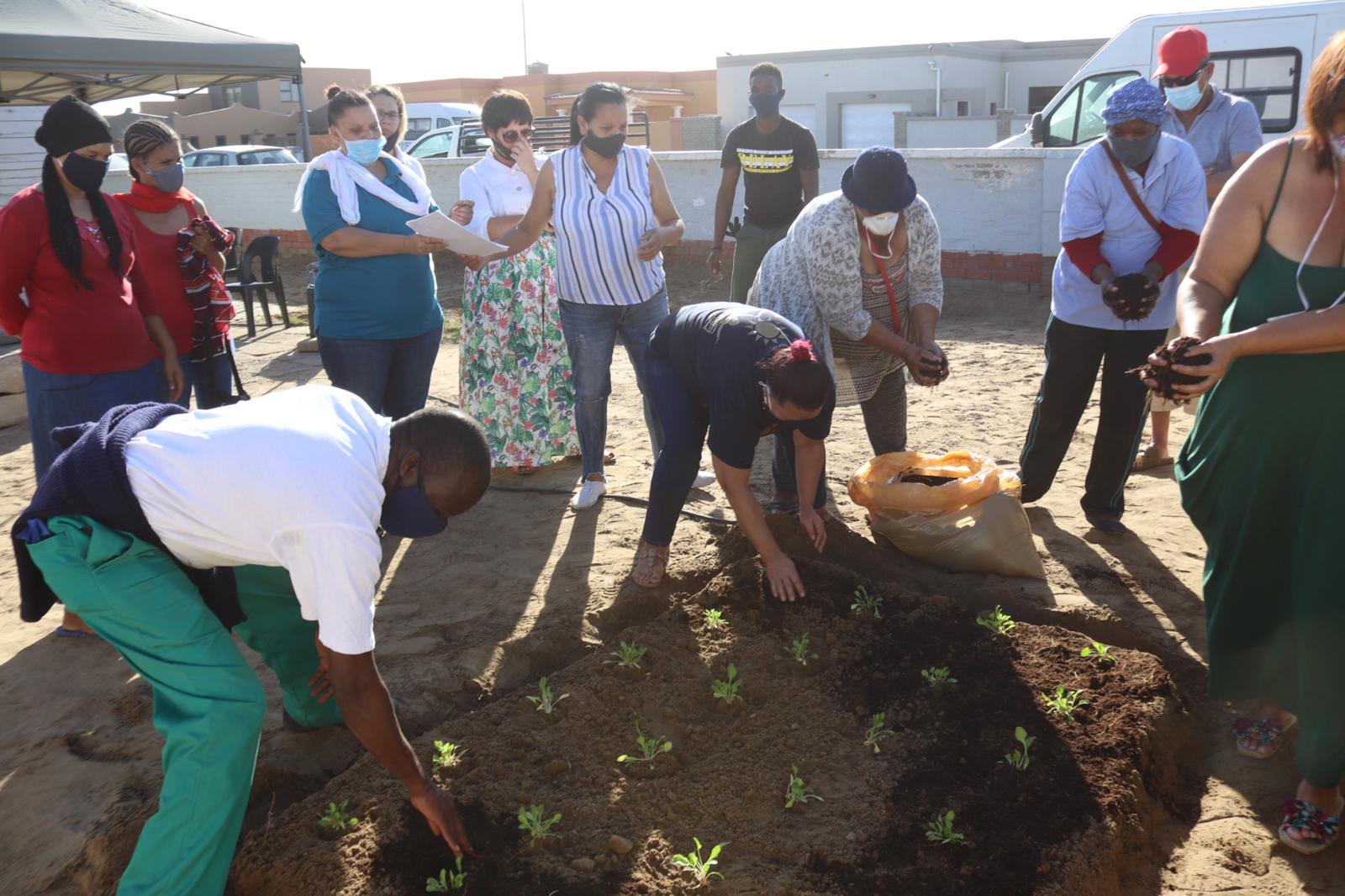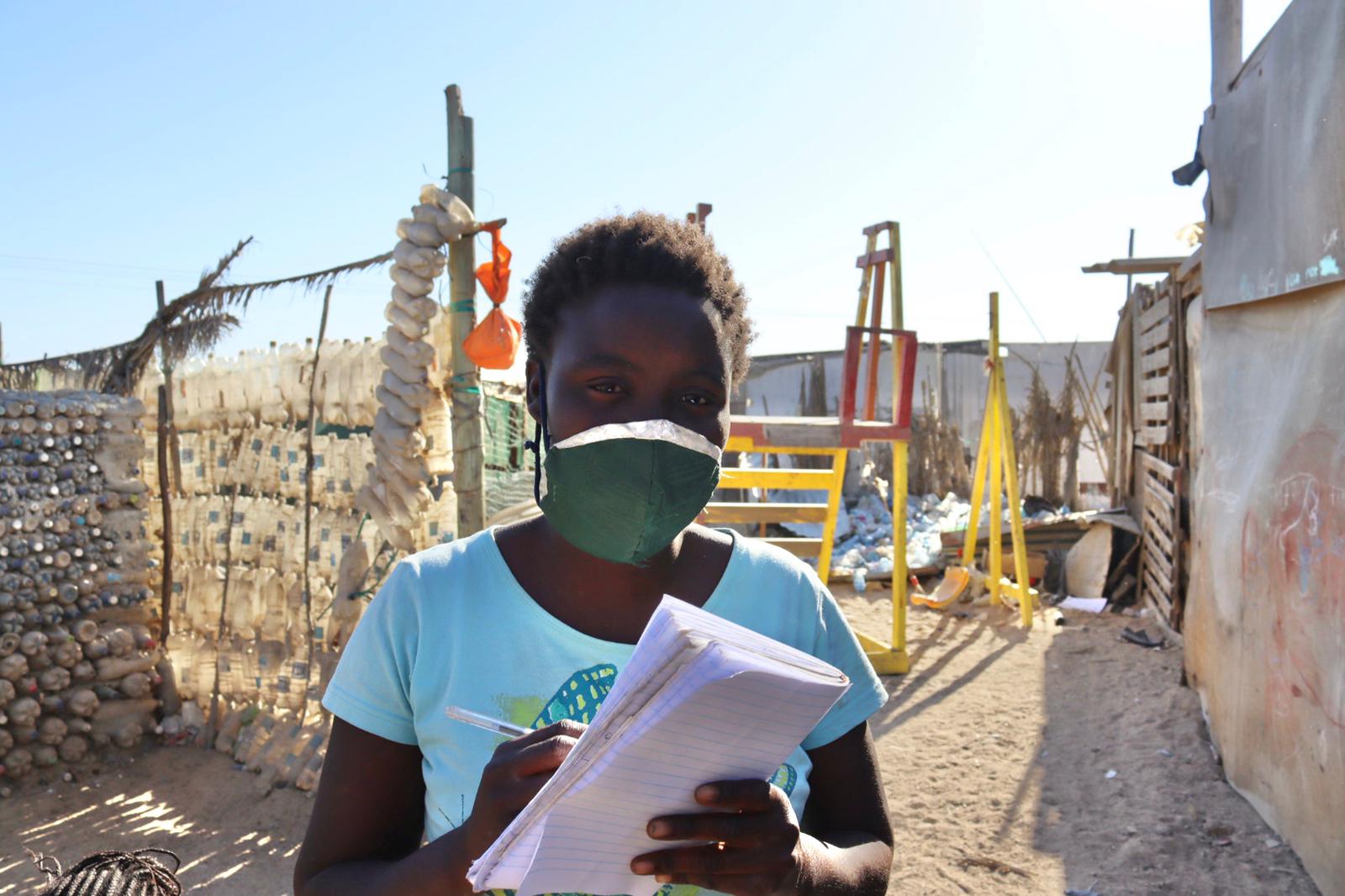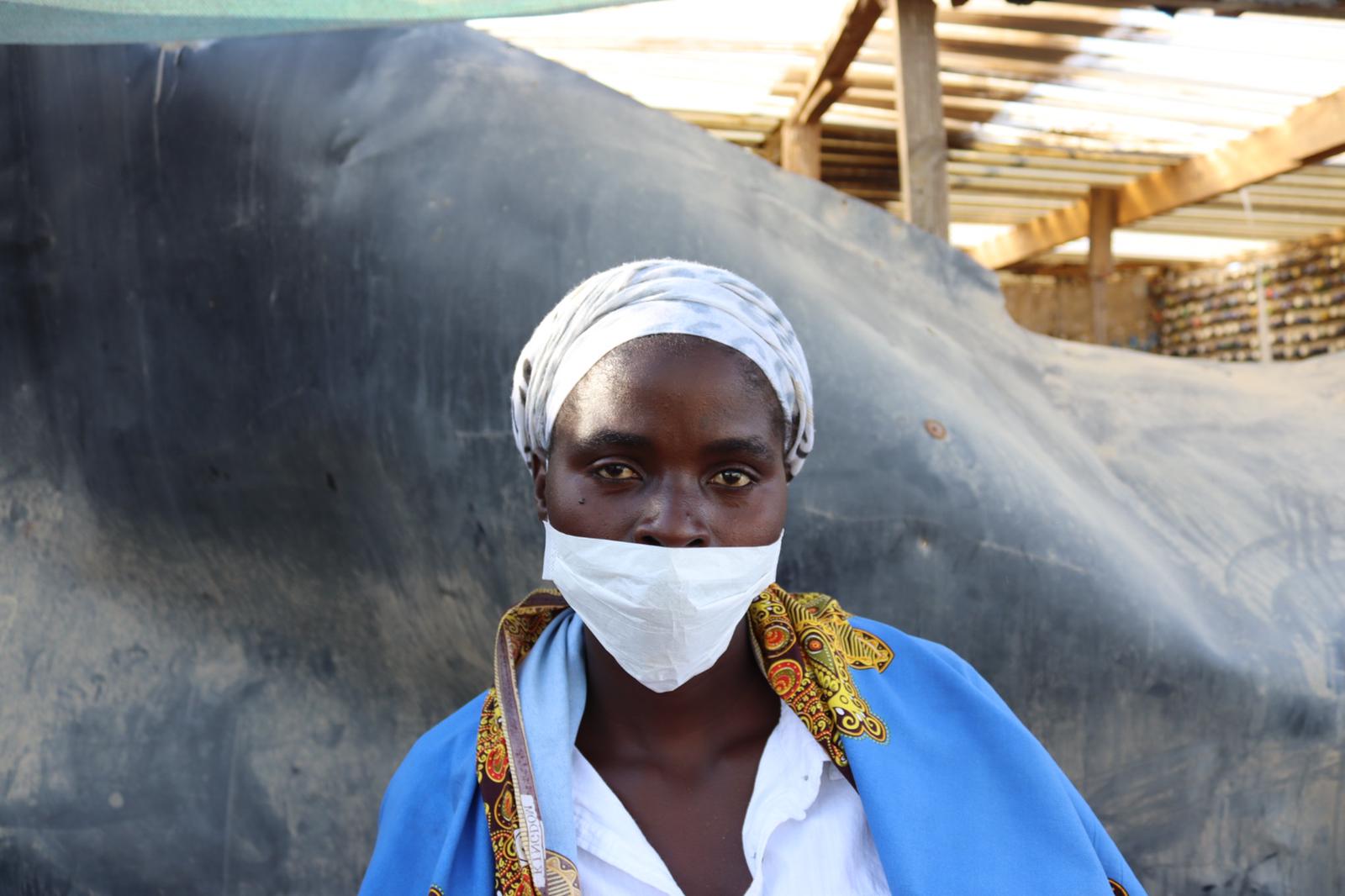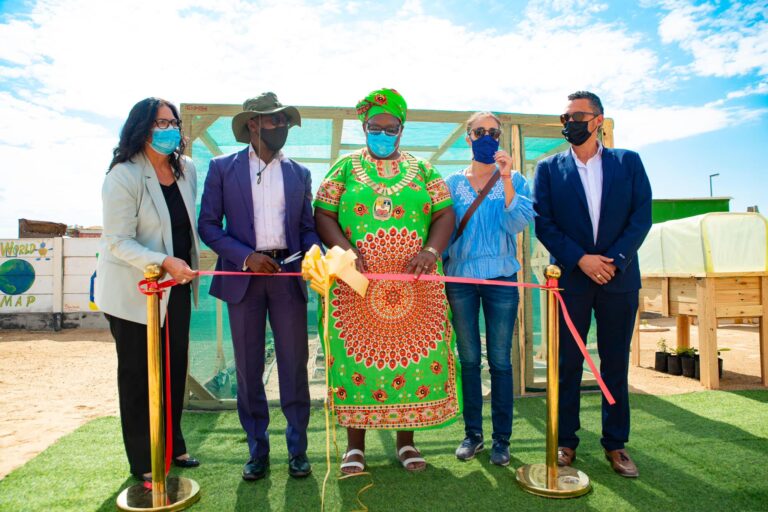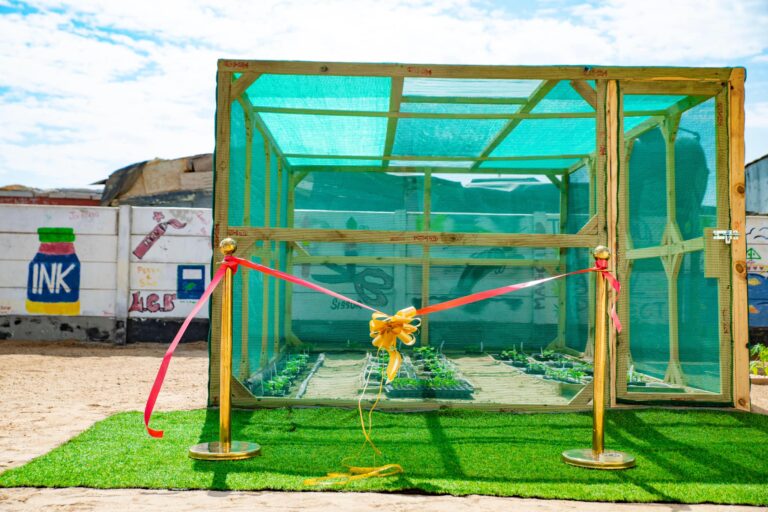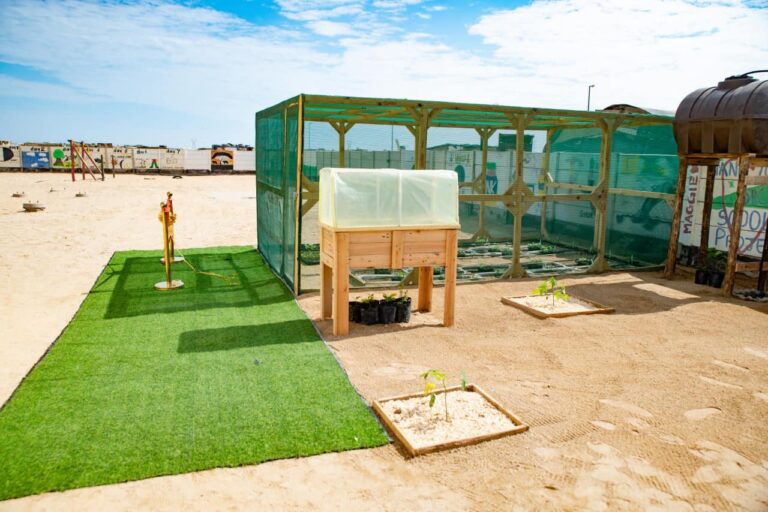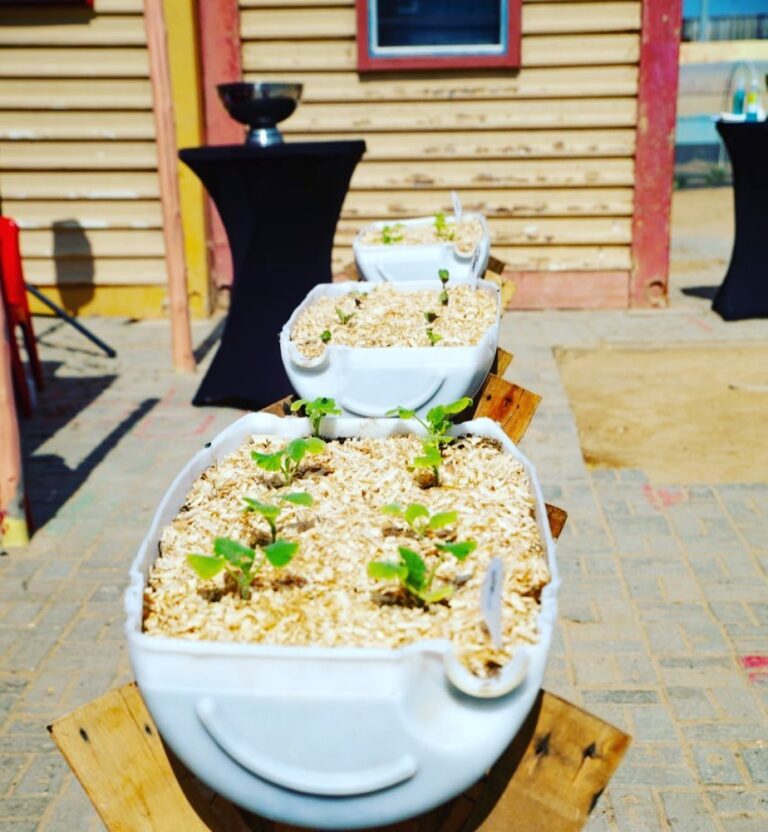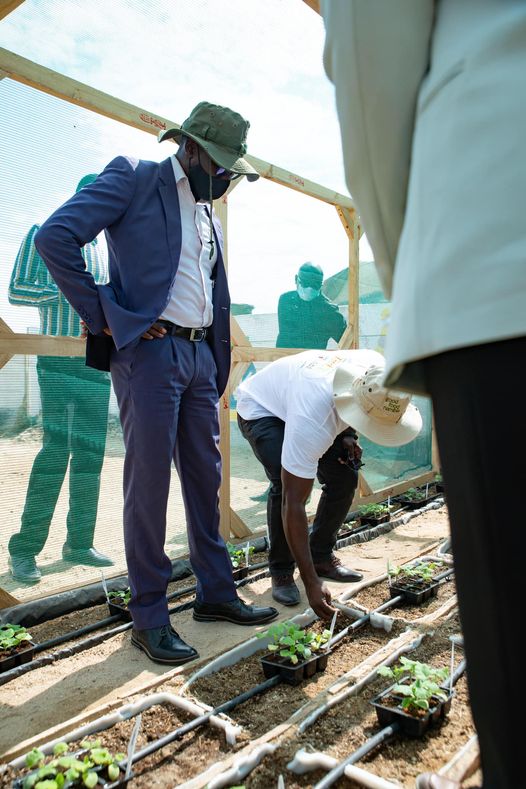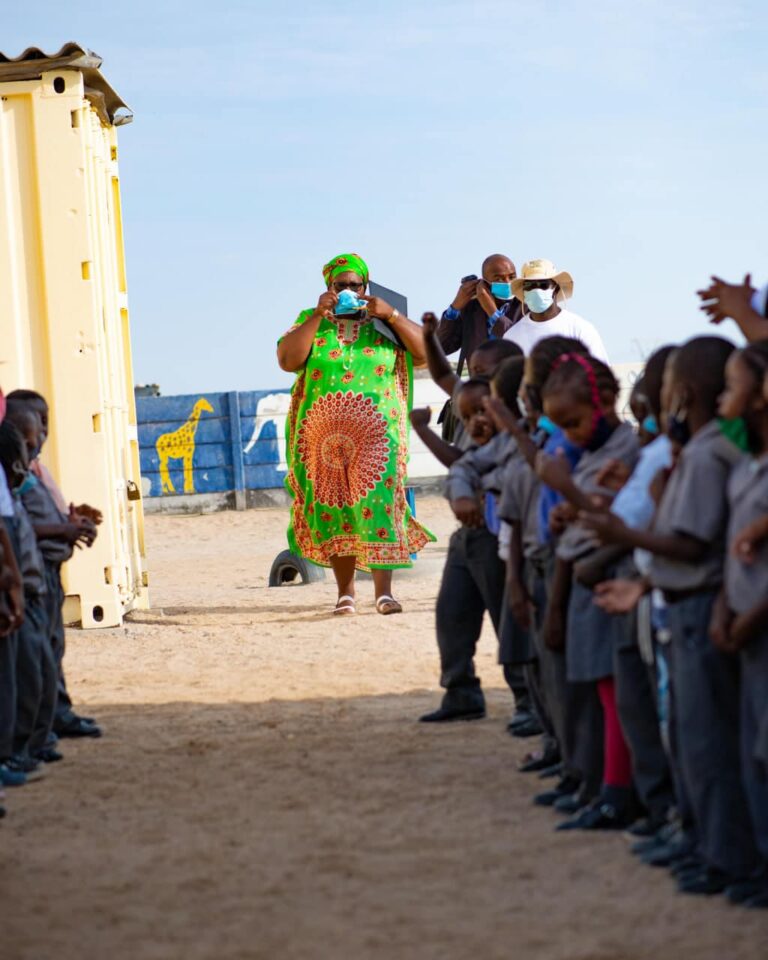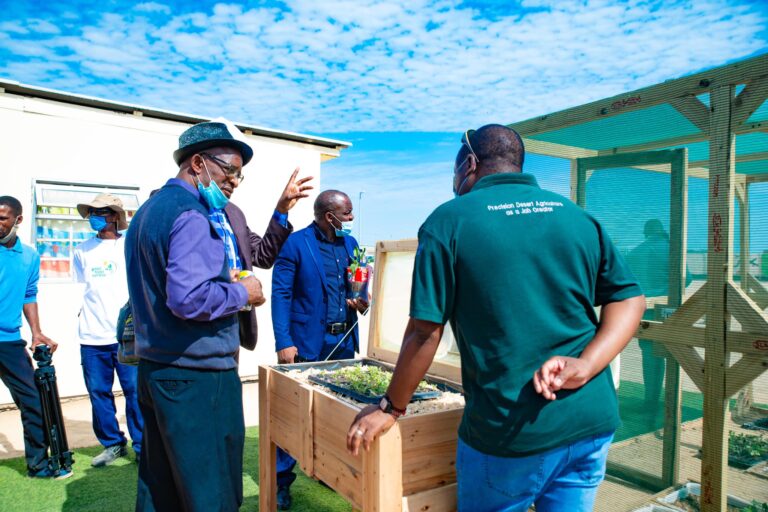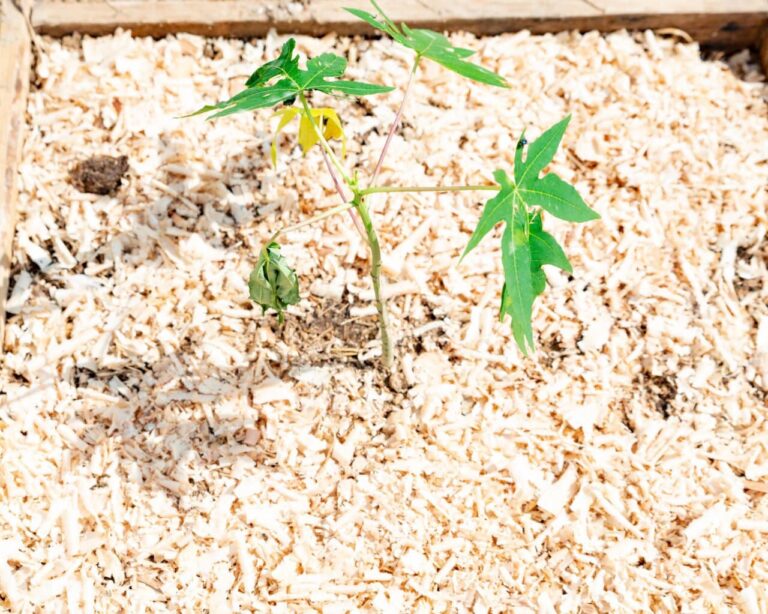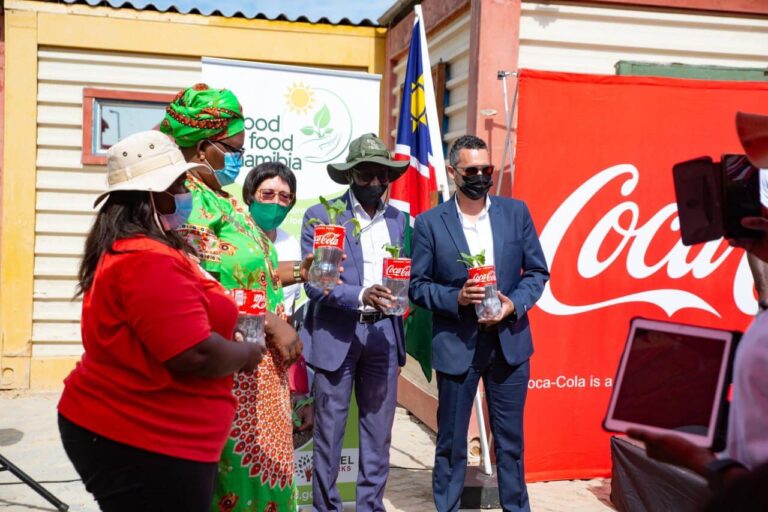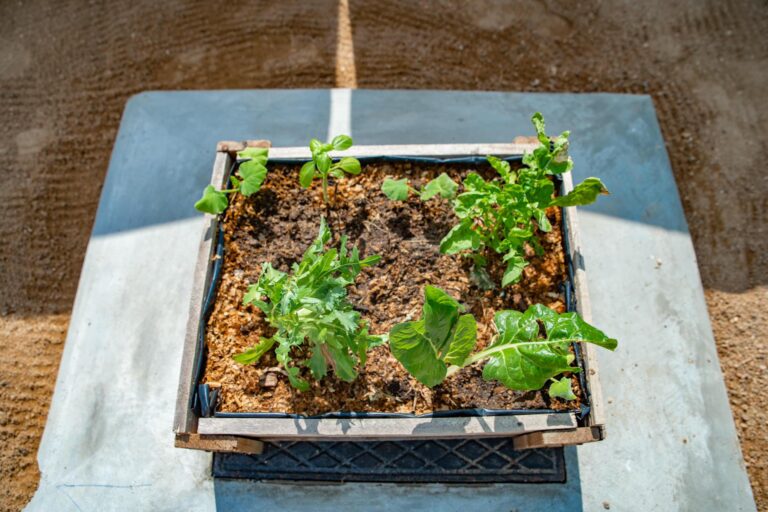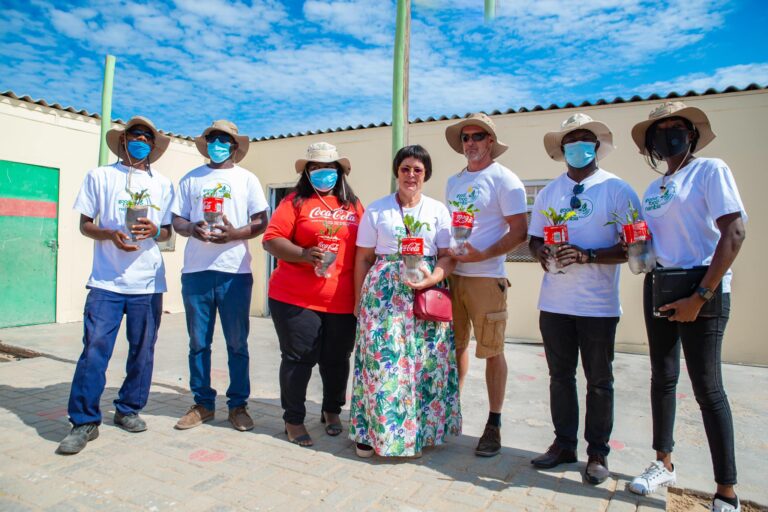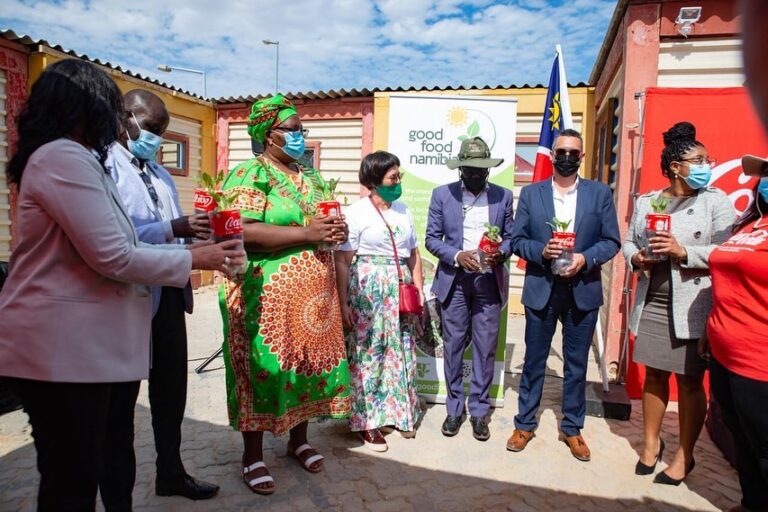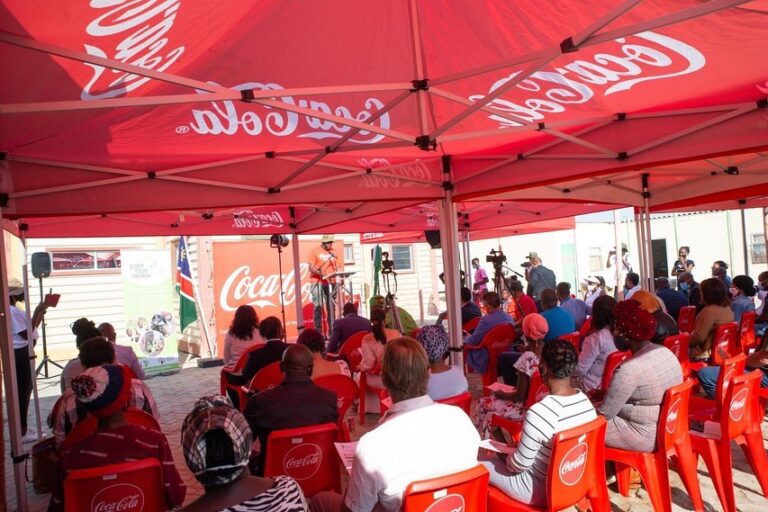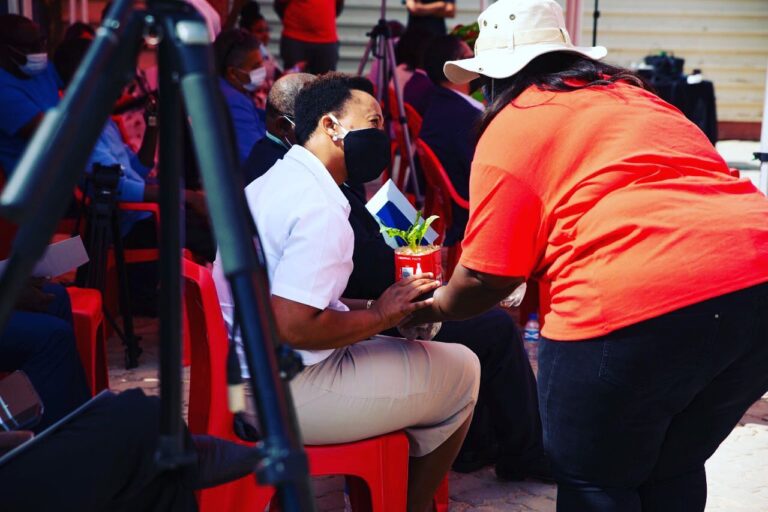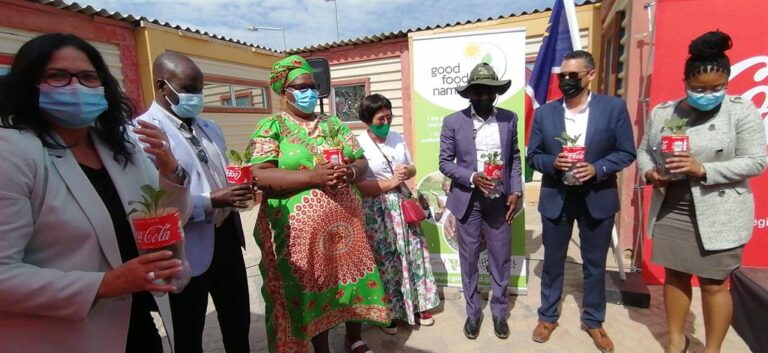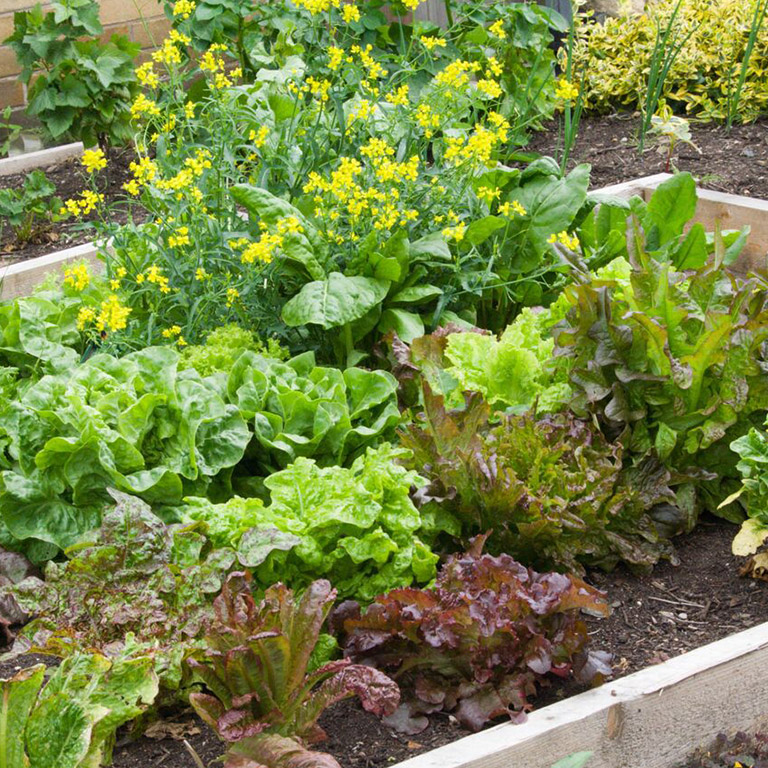Let's Grow
Projects
Good Food Namibia works with various local communities, government, corporate and international organizations, to invest in projects that can create meaningful transformative change in the agriculture sector, while focusing on food security.
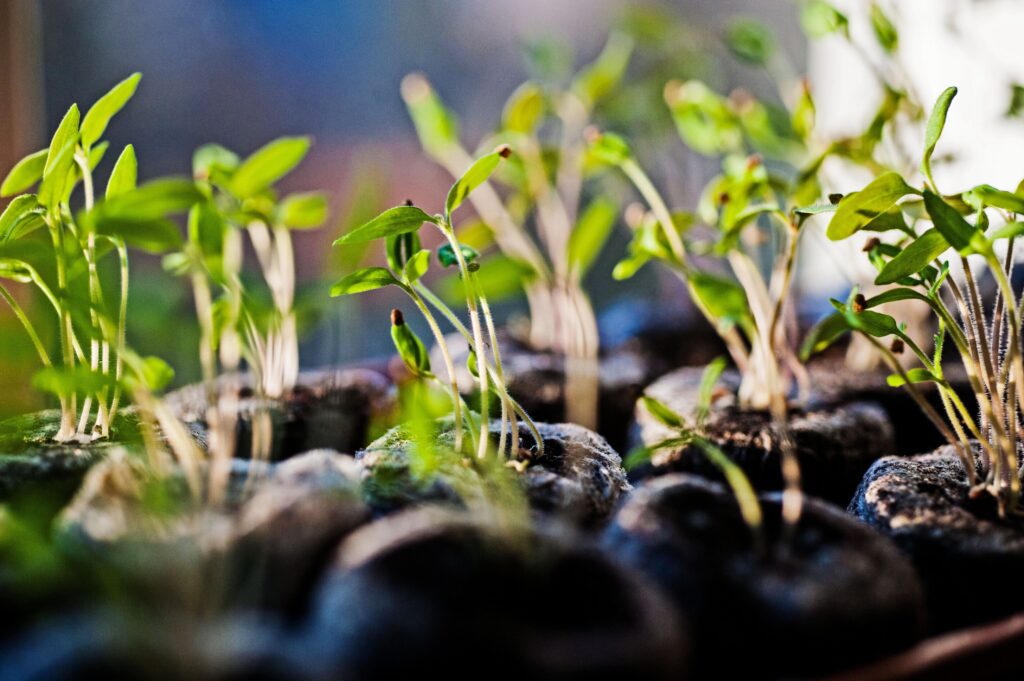
Good Food Namibia is sponsoring green spinach seedlings as part of a drive to encourage urban gardens at the coast. These seedlings are ready to be planted in vegetable gardens, which can be harvested within a few weeks. Projects, NGOs and individuals from Swakopmund and Walvis Bay are all invited to benefit from this drive.
This initiative is running for the month of November 2021
Collection Arrangements:
SMS Good Food Namibia
+264 811 281014
Launch of Coca Cola Beverages Namibia
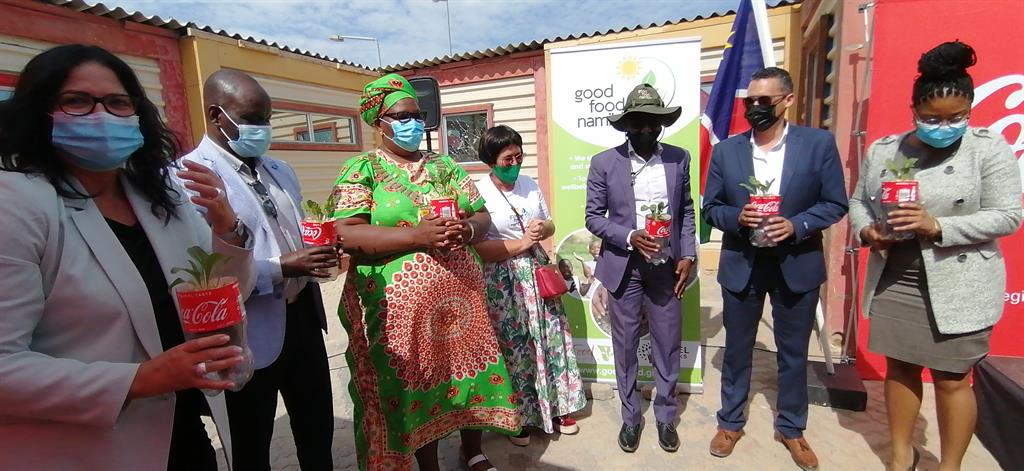
The governor of the Erongo region, Neville Andre with invited guests at the the launch of the Smart Urban Agricultural Project by Good Food Namibia in the DRC settlement Swakopmund. Photo Otis Daniels.
LAUNCH OF SMART URGAN AGRICULTURAL PROJECT BY GOOD FOOD NAMIBIA, DRC, SWAKOPMUND, NAMIBIA
Extracts from key stakeholders
The governor of the Erongo region, Neville Andre, has urged corporates to include urban agriculture in their social investment strategies.
“We need to move from a culture of backyard shacks to a culture of backyard gardens to feed ourselves. There is growing recognition that the vision Zero Hunger cannot be realised unless urban food security is adequately addressed,” Andre said at the launch of the Smart Urban Agricultural Project by Good Food Namibia in the DRC settlement Swakopmund.
Paratus Erongo
The governor pointed out that urban agriculture is a means to make productive use of urban spaces such as backyards since it is one of the sources of supply to urban food systems.
“Urban agriculture is also used in recovering or treating urban liquid and solid waste, and ultimately contributes to the contribution of employment, generation of income and the management of freshwater resources.”
According to the governor, building food secure urban and rural households is equally important.
“In the past, urban food security has not received as much attention in development interventions as rural food insecurity due to an assumption that the food insecure live mostly in rural areas. However, we saw how vulnerable urban households were to imports of food during the closing of borders after the outbreak of Covid-19 in Namibia. We experienced delayed delivery of basic foodstuff as well as an increase in prices.”
Positive spinoffs
Andre says that when managed properly, urban agriculture can bring many positive spinoffs. “It can contribute to food security by increasing the quantity of food available. Poor urban dwellers often lack the means to buy adequate amounts of food, and urban agriculture could reduce food insecurity by providing direct access to home-produced food to households and to the informal markets. It can enhance the freshness of perishable foods reaching urban consumers and so increase the overall variety and nutritional value of food available. It can also offer opportunities for productive employment in a sector where there are low entry barriers.”
The governor also pointed out that poor urban households face many pressures, including high food prices, high rates of unemployment, limited basic services, poor infrastructure and overcrowding.
“Projections by the United Nations and food scientists indicate that the world will need to produce 70% more food to feed about two billion people by 2050. While improving farming practices and minimizing food waste is essential to meeting this challenge, growing more food in cities could also mean the difference between success and failure.”
Good Food
The Good Food Namibia urban agriculture program was created to enhance environmental sustainability, push for smart urban and small-scale food enterprise development to alleviate poverty, as well as to improve food security and nutritional value in order to respond to and recover from the Covid-19 calamity.
Since inception, Good Food Namibia has provided support to more than 600 households via urban gardening targeting women and unemployed youth in Swakopmund, Walvis Bay, Okombahe in the Daures constituency and Lüderitz on how to maximise food crop production.
Coca Cola heeded a call for sponsorship as part of its social responsibility and pledged to support urban agricultural gardening through the provision of resources for the implementation of the project in the DRC.
In partnership with Good Food Namibia, the project in the DRC will support 180 households, mainly women and unemployed youth in Swakopmund and mostly in the DRC, Walvis Bay, Okombahe and Utuseb.
Food security
According to Manfried Kamwanga Likoro, a co-founder of Food Namibia, food security is one of the biggest issues facing Namibia today.
“It is not only a health and economic issue but also a security issue with 25% of Namibians facing hunger and 65% of food being imported.”
Likoro said that Food Namibia and its strategic partner Joel Parks and other stakeholders understand the challenge of food security and thus came up with alternative solutions to engage communities in urban areas to assist them in growing their own food through a sustainable smart urban and small-scale food enterprises development programme.
Food Namibia strives to promote smart urban agriculture which allows residents to use their backyard space and grow their own food for self-consumption.
“We intend to spur action towards building safety and resilience which increases the sustainability of food security, allowing households to take charge of their future and build better lives by inspiring food growers to use their backyard to focus on food security, poverty and hunger alleviation. One thousand gardens could feed 10 000 household by the end of 2021,” Likoro said.
Swakopmund Mayor Louisa Kativa welcomed the initiative and urged the community to make use of the opportunity.
“This is an innovative way to assist people in becoming self-reliant. The beneficiaries will be able to trade the goods they grow and feed their own households.”

Thank you Coca-Cola Beverages Africa Namibia
We are excited for you to join the journey to secure food for the Namibian community.
Help Us Grow
- Good Food Namibia 2021
